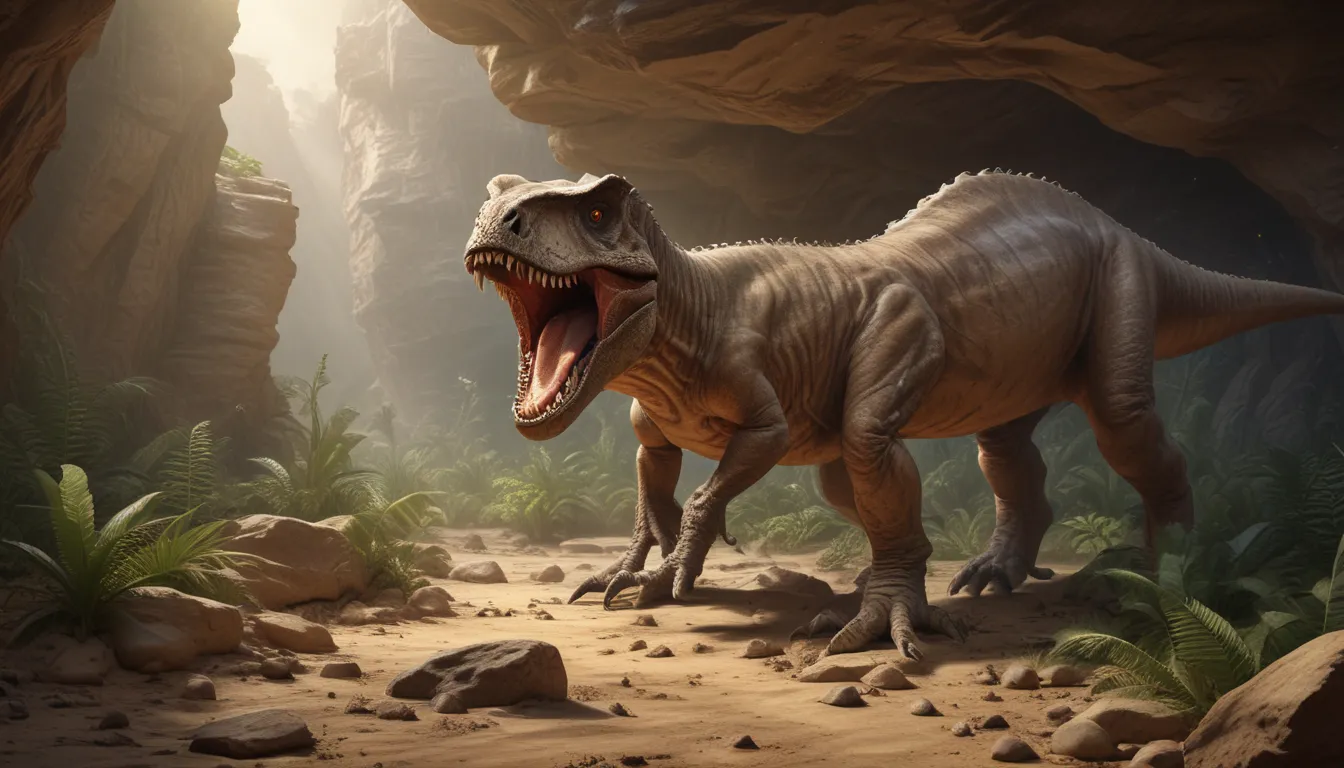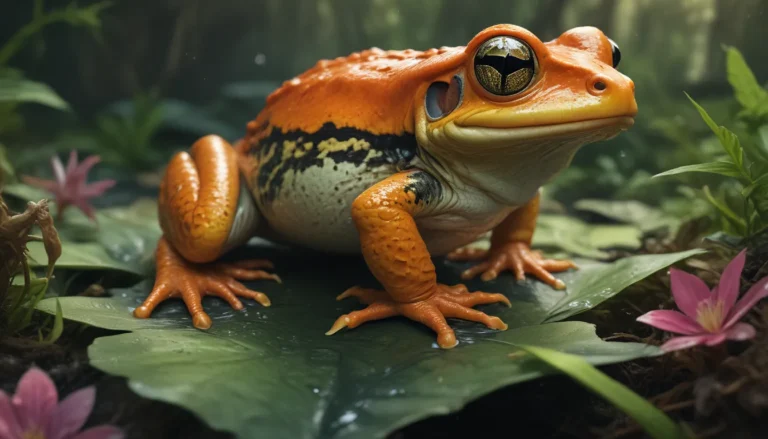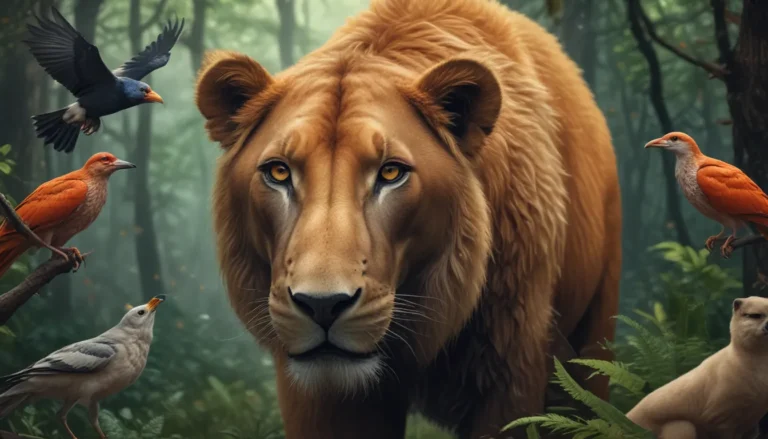A Note About Images: The images used in our articles are for illustration purposes only and may not exactly match the content. They are meant to engage readers, but the text should be relied upon for accurate information.
Welcome to the captivating world of paleontology, where ancient creatures and ecosystems come to life through the study of fossils. Paleontology, the scientific exploration of prehistoric life forms, offers a unique perspective on Earth’s history and the evolution of life on our planet. Join us as we unearth eight intriguing facts that reveal the wonders of this fascinating field, from massive dinosaur fossils to the secrets of ancient ecosystems.
Unraveling the Past: The Essence of Paleontology
Paleontology, derived from the Greek words “paleo” meaning old, and “ontos” meaning being or creature, delves into the study of ancient life forms that once roamed the Earth. By examining fossils and other evidence, paleontologists piece together the history of life on our planet, providing valuable insights into the intricate tapestry of Earth’s past.
Journey to Discovery: The Evolution of Dinosaur Science
In the early 19th century, British anatomist Richard Owen introduced the term “dinosaur” to describe the fossilized remains of ancient reptiles, revolutionizing our understanding of Earth’s history. This pivotal discovery paved the way for further exploration and research in the field of paleontology, unlocking a wealth of knowledge about the creatures that inhabited our planet millions of years ago.
Tools of the Trade: The Art of Excavating Fossils
Paleontologists employ a variety of tools, including brushes, chisels, and dental picks, to delicately extract fragile fossils from rock formations. These meticulous excavation techniques ensure the preservation of fossils and enable scientists to study them in detail, unraveling the mysteries of ancient life forms with precision and care.
Echoes of Eternity: Insights from Ancient Ecosystems
Fossils serve as windows into the past, allowing paleontologists to reconstruct ancient ecosystems and understand the interactions between different species. By analyzing the flora and fauna that coexisted during specific time periods, scientists gain valuable insights into Earth’s past biodiversity, painting a vivid picture of the prehistoric world.
Beyond the Dinosaurs: Exploring the Diversity of Life
Paleontologists study a wide range of fossils, from dinosaurs and ancient reptiles to sea creatures like ammonites and trilobites. This comprehensive approach broadens our understanding of the evolutionary processes that have shaped our planet, offering a glimpse into the rich tapestry of life’s history.
The Human Connection: Tracing Our Evolutionary Journey
Through the fossil record, paleontologists have reconstructed the evolutionary history of humans and their ancestors, shedding light on the origins and development of early hominids. Remarkable discoveries, such as Lucy (Australopithecus afarensis), provide valuable insights into the complex journey of human evolution.
Fieldwork and Lab Analysis: A Multifaceted Approach to Discovery
Paleontologists devote time to fieldwork, exploring remote locations in search of fossils that hold clues to Earth’s past. Once fossils are collected, they are meticulously cleaned, prepared, and analyzed in the laboratory, combining field observations with detailed scientific analysis to unlock the secrets of ancient remains.
Guardians of the Past: Understanding Extinction Events
By studying mass extinctions throughout history, paleontologists uncover the causes and consequences of these events, offering valuable insights into the potential effects of environmental changes. Understanding past extinctions helps us mitigate future biodiversity loss and preserve the delicate balance of life on Earth.
In conclusion, the field of paleontology is a treasure trove of knowledge that enriches our understanding of Earth’s history and the incredible diversity of life that has evolved over millions of years. As we delve into the mysteries of the past, we gain a deeper appreciation for the intricate web of life that connects us to the ancient creatures that once roamed the Earth.
Embracing the Adventure: Dive Deeper into Paleontology
From the discovery of Tyrannosaurus rex to the revelation that birds descended from dinosaurs, paleontology continues to shape our understanding of the natural world. By unraveling the secrets of the past, we gain a deeper appreciation for the evolution of life on our planet and the interconnectedness of species throughout time.
FAQs: Exploring the World of Paleontology
- What is paleontology?
-
Paleontology is the scientific study of prehistoric life through the examination of fossils, providing insights into Earth’s history and the evolution of life.
-
How do paleontologists find fossils?
-
Paleontologists locate fossils by searching sedimentary rocks, conducting field expeditions, and studying collections in museums and research institutions.
-
How old are the fossils studied by paleontologists?
-
Fossils can range from a few thousand years to millions of years old, representing various geological time periods.
-
What information do fossils reveal about ancient organisms?
-
Fossils offer details about the morphology, behavior, and ecological interactions of ancient organisms, aiding in the reconstruction of past ecosystems and evolutionary processes.
-
How do paleontologists determine the age of fossils?
-
Paleontologists use techniques like radiometric dating and correlation with well-dated fossils to determine the age of fossils accurately.
-
Can paleontologists infer ancient organisms’ color and soft tissues from fossils?
-
While challenging, paleontologists use indirect evidence and modern analogs to make educated guesses about ancient organisms’ color and soft tissues.
-
What remarkable discoveries have paleontologists made?
-
Paleontologists have unearthed fossils of dinosaur species, early human ancestors, marine reptiles, and evidence of early life on Earth, shaping our understanding of evolution.
-
How does paleontology contribute to our understanding of evolution?
- Paleontology offers a unique perspective on evolutionary changes over millions of years, identifying transitional forms and tracking the development of different organism groups.
In the vast landscape of paleontology, adventure awaits those curious souls eager to uncover the mysteries of Earth’s past. Dive into this captivating field, where each fossil holds a story waiting to be told, and embark on a journey through time that will ignite your imagination and expand your knowledge of the incredible journey life has taken on our planet.






